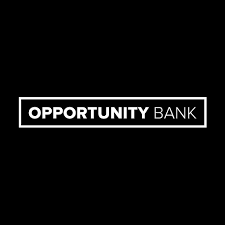
Job Summary:
We are seeking an experienced and results-driven Digital Marketing Executive to join our dynamic marketing team. The Digital Marketing Executive will be responsible for developing, implementing, and managing marketing campaigns that promote our company and its products or services. This role requires a combination of creativity, analytical thinking, and technical knowledge to enhance our online presence and drive brand engagement and conversions.
Key Responsibilities:
- Strategy and Planning:
Develop, implement, and manage comprehensive digital marketing strategies to achieve business objectives.
Plan and execute digital marketing campaigns, including SEO/SEM, email, social media, display advertising, and PPC.
Collaborate with the marketing team to create cohesive and effective marketing plans.
- Content Management:
Oversee the creation and curation of engaging and relevant content for various digital platforms, including website, blog, social media, and email.
Ensure all content aligns with brand guidelines and enhances the company’s voice and online presence.
Work with designers and content creators to develop multimedia content.
- Social Media Management:
Manage and grow the company’s social media presence across platforms such as Facebook, Instagram, Twitter, LinkedIn, and others.
Develop and implement social media strategies to increase engagement, followers, and conversions.
Monitor social media channels, respond to comments, and engage with the online community.
- SEO and SEM:
Optimize website content and landing pages for search engine optimization (SEO).
Conduct keyword research and use SEO best practices to increase organic traffic.
Manage pay-per-click (PPC) campaigns and monitor their effectiveness.
- Analytics and Reporting:
Track and analyze website traffic flow and provide regular internal reports.
Measure and report performance of all digital marketing campaigns, and assess against goals (ROI and KPIs).
Use data to identify trends and insights, and optimize spend and performance based on the insights.
- Key Responsibilities:
Strategic Planning:
Audience Analysis: Conduct thorough research to understand the target audience’s demographics, behaviors, and preferences.
Platform Selection: Identify the most effective digital platforms (e.g., Google, Facebook, Instagram, YouTube) for ad placements based on audience insights.
- Budget Management:
Allocate and manage the advertising budget across different platforms and ad formats to maximize ROI.
- Ad Formats and Placement:
Display Ads: Manage the creation and placement of visual ads on websites and apps.
Search Ads: Develop and optimize text-based ads for search engines like Google.
- Social Media Ads:
Create and manage sponsored posts and ads on social media platforms.
Video Ads: Plan and execute video ad campaigns on platforms like YouTube.
- Native Ads:
Integrate ads seamlessly with platform content for a more natural user experience.
Programmatic Buying:
- Real-Time Bidding (RTB):
Utilize automated bidding for ad impressions in real-time auctions.
Demand-Side Platforms (DSPs): Use DSPs to buy ad inventory across multiple exchanges.
Data Management Platforms (DMPs): Leverage DMPs for advanced audience targeting and data analysis.
- Campaign Execution:
Ad Creation: Oversee the development of engaging ad creatives that resonate with the target audience.
Targeting: Implement data-driven targeting strategies to reach specific audience segments.
Placement: Ensure strategic ad placements on relevant websites and digital platforms.
Monitoring and Optimization:
- Performance Tracking:
Monitor key performance indicators (KPIs) such as click-through rates (CTR), conversion rates, and return on ad spend (ROAS).
A/B Testing: Conduct A/B tests to determine the most effective ad creatives and targeting options.
Optimization: Continuously optimize campaigns based on performance data to improve results.
Reporting and Analysis:
Analytics: Use tools like Google Analytics and platform-specific insights to measure campaign performance.
Reporting: Generate detailed reports to provide insights into campaign effectiveness and ROI.
Strategy Adjustment: Refine future media buying strategies based on data analysis and performance feedback.
14. Collaboration and Coordination:
Work with internal teams to brainstorm new and innovative growth strategies.
Collaborate with agencies and other vendor partners to improve marketing results.
Coordinate with the sales team to create marketing materials and campaigns that drive lead generation and sales.
Qualifications
- Ability to create and manage all types of campaign programs (reputation, demand
- Knowledge of demand-type and how it relates to the user web experience
- Ability to define and implement an effective mix of video tactics including web, emails, social, search engine optimization and paid media to support business objective.
- Ability to understand the digital buyer’s journey and customer lifecycle to drive digital demand creation and retention efforts
- Ability to define, implement, and manage processes across the different digital tactics and teams to ensure consistency of efforts and coordination of teams
- Possession of technical skills including programming, user interface, systems integration, and Web development







